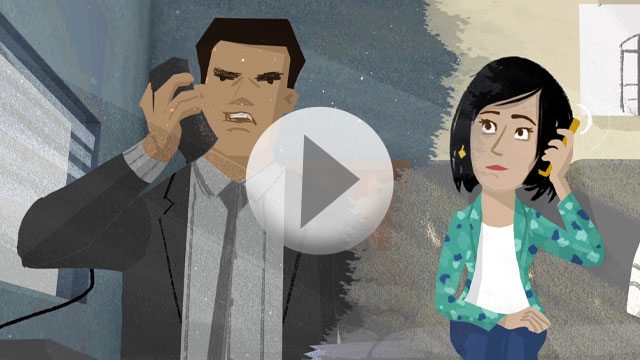Have you ever gotten a call about a debt you don’t recognize? Or had a collector harass, threaten, or lie to you? Whether or not you owe a debt, you have rights when it comes to debt collectors. Here’s what you need to know.
How to Spot Fake Debt Collectors
Not everyone who calls and says you owe a debt is a real debt collector who is collecting a real debt. Some are scammers who are just trying to take your money. So how do you tell?
A caller may be a fake debt collector if they
- want you to repay a debt you don’t recognize
- refuse to give you their mailing address or phone number
- pressure you, or try to scare you into paying by threatening to report you to law enforcement or have you arrested
How to Know If a Debt Is Yours
Did someone contact you about a debt you don’t recognize? The best way to confirm it’s yours is to get “validation information.” By law, debt collectors have to tell you the following in writing or over the phone
- the name and mailing address of the debt collector
- the name of the creditor you owe money to
- how much money you owe, with detail that includes interest, fees, payments, and credits
- what to do if you don’t think it’s your debt
- your debt collection rights, including your right to get information about the original creditor if you ask for it within 30 days of getting validation information from the collector
Once you get the validation information, if you still don’t recognize a debt, or don’t think the debt is yours, send the debt collector a dispute letter. Say you don’t owe some or all of the money, and ask for verification of the debt.
Make sure to send the dispute letter within 30 days. Once the collection company gets the letter, it must stop trying to collect the debt until it sends you written verification of the debt, like a copy of the original bill for the amount you owe. Consider sending your letter by certified mail and requesting a return receipt to show that the collector got it. Keep a copy of the letter for your records.
If you don’t dispute the debt within 30 days of getting the validation information, the debt collector will assume the debt is legitimate.
Before you trust a person who calls to collect a debt, especially one you don’t recognize
Get “validation” information about the debt.
- Either when they first communicate with you or within 5 days of the first contact, debt collectors must tell you information about their company and the debt.
Don’t respond to threats.
- Did the debt collector threaten to arrest you, suspend your driver’s license, or call your employer? Hang up and report them.
Dispute the debt.
- Think you don’t owe some — or all — of the debt? Dispute it with the collector by mail or online.
Learn more about dealing with debt collection at ftc.gov/debt.
How to Spot an Abusive Debt Collector
What if you recognize the debt, but you think the debt collector is harassing or lying to you? Or treating you unfairly? Here are some things to know:
Collectors can’t harass you. For example, collectors
- can’t threaten to hurt you
- can’t use obscene or profane language
- can’t call you more than seven times within a seven-day period to try to reach you about a particular debt. Once you talk to a collector, they can’t call you again within seven days of that conversation.
Collectors can’t lie. For example, collectors
- can’t say you owe a different amount than what you actually owe
- can’t pretend to be an attorney or from the government
- can’t say that they’ll have you arrested, or claim they’ll take legal action against you if they won’t.
Collectors can’t treat you unfairly. For example, collectors
- can’t try to collect interest, fees, or other charges on top of the amount you owe, unless the original contract or your state law says they can
- can’t deposit a post-dated check early
- can’t publicly share your debts, including by sending postcards or putting information on envelopes
Report Fake and Abusive Debt Collectors
Have you spotted a fake or abusive debt collector? Report it to
- your state attorney general’s office
- the Federal Trade Commission
- the Consumer Financial Protection Bureau
Many states have their own debt collection laws that are different from federal laws. Your state attorney general’s office can help you determine your rights under your state’s law.

